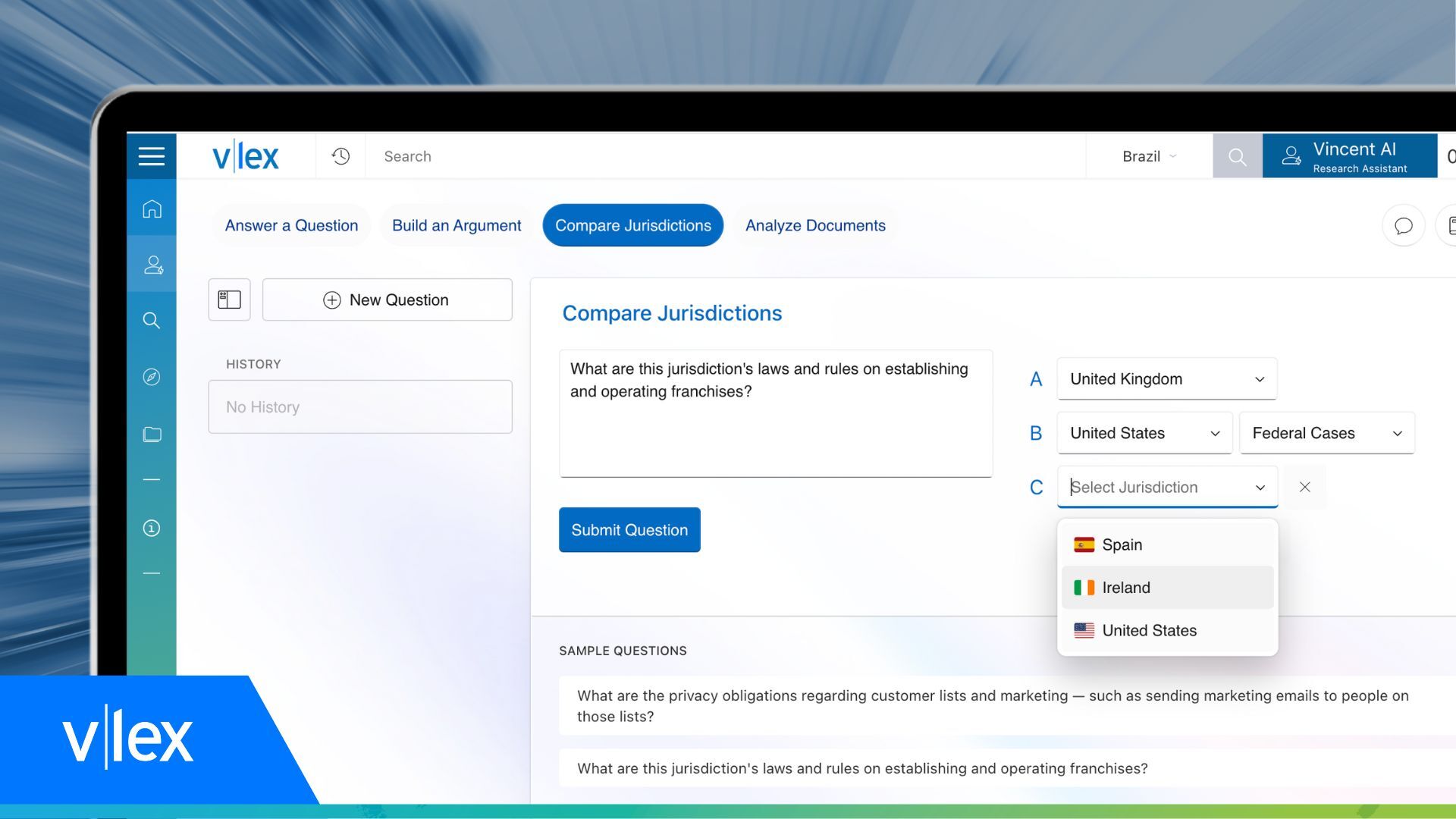AI-enabled workflow platform Vincent AI expands capabilities

“Because it is powered by one of the world’s largest libraries of structured legal data, Vincent AI has offered some of the most powerful AI workflow tools in the world,” said vLex CEO Lluis Faus. (Screenshot from the vLex Vincent AI interface)
Leading AI-powered legal tech company vLex released a major upgrade Thursday to Vincent AI, its workflow platform.
Vincent AI previously provided four workflows but now offers 12. It also has expanded its legal research coverage areas to include France, Portugal and Brazil.
“Because it is powered by one of the world’s largest libraries of structured legal data, Vincent AI has offered some of the most powerful AI workflow tools in the world,” said vLex CEO Lluis Faus in a press release. “Vincent AI has evolved to become an AI platform, hosting many different tools for drafting, planning, analysis and research.”
Whereas the previous version of Vincent AI focused mainly on litigation, the new upgrades include features for transactional tasks, including drafting tools, redlining tools and a workflow that lets you compare law between jurisdictions around the world.
Additionally, users can take advantage of more multiturn conversation features, allowing them to ask follow-up questions and obtain deeper analyses of legal issues. Users can use Prompt Assist, which offers recommendations about which tools to use.
Meanwhile, Vincent AI now lets users generate multidocument libraries called Collections, which could include brief banks, style guides, or in-house knowledge management resources.
“This new version of Vincent AI goes way beyond just new skills,” vLex Global Head of Product Robin Chesterman said in the press release. “Law firms are co-developing their own AI applications with vLex Labs. They are uploading Collections and working on them as a team, getting query support along the way with Prompt Assist.”
Using AI technology, Ed Walters, chief strategy officer at vLex and co-founder of Fastcase, demonstrated to the ABA Journal how Vincent AI is able to respond with a relatively small number of results—sometimes just 20-something responses compared with more than 2,500 before the upgrade.
This time, Walters says, less is more because it delivers the results users actually need rather than an assortment of unassociated documents.
He adds that the technology allows the program to index ideas in the documents, respond to questions and answer the questions with linked documentation.
For instance, Walters dropped a purchase agreement into Vincent AI, and the program immediately recognized the document as a purchase agreement and suggested tasks that would need to be completed.
“This would take weeks,” Walters says. “It took one minute.”
In a similar yet no less helpful task, Walters asked the system for a comprehensive review of post-closing obligations. Within seconds, Vincent AI identified closing obligations and directed the user to sites and clauses that would outline them.
And when he typed in Musk v. Altman, Vincent AI identified a complaint for breach of contract as well as claims, defenses, key issues and research directly related to the case.
The upgrade follows the April 2023 merger between Fastcase, a Washington D.C.-based legal research company, and vLex, a global legal intelligence platform, into vLex Group, which combined the data and global subscribers to form what the company described as “the world’s largest law firm subscriber base with more than 1 billion legal documents from more than 100 countries.”
The merger led to the inclusion of Fastcase, Docket Alarm and NextChapter brands into vLex, which are now used by more than 2 million lawyers and other researchers.
The latest upgrade doesn’t change the cost of the product, which will continue to remain stable for new and previous users, Walters says.
This isn’t the last time you’ll see major upgrades from the legal tech giant, Chesterman added in the statement.
“I’d like to remind people that even though we’re already on the third major update, Vincent AI isn’t yet a year old,” he said. “We’re already testing some amazing applications that we’ll add to Vincent AI shortly—maybe in winter ’24.”



